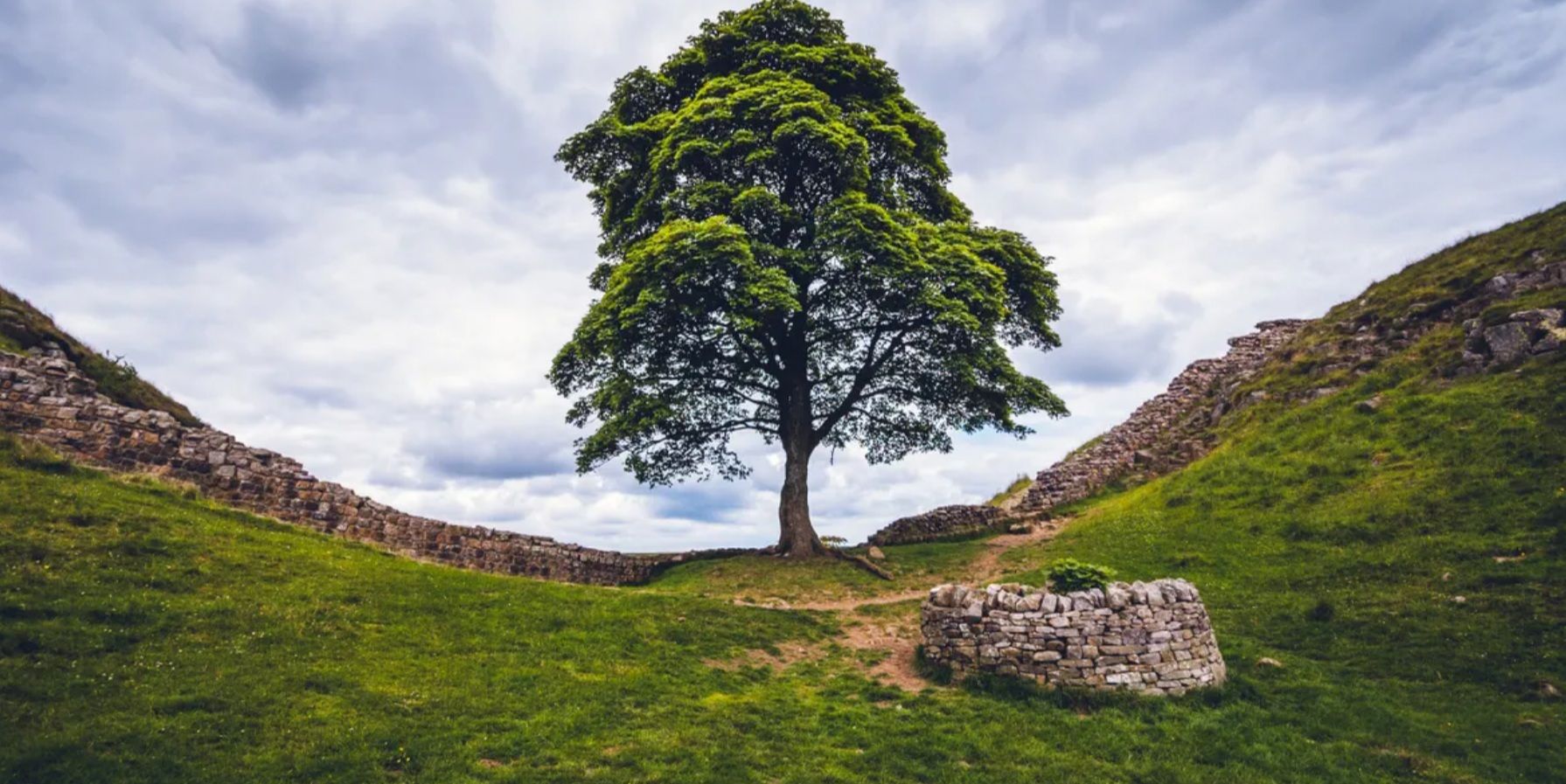In The Name of Allaah, The Most Merciful, The Bestower of Mercy.
“In the name of Allah the Most Merciful, the Bestower of Mercy.
(This letter is) from Muhammad the slave of Allaah and His Messenger to Heraclius the ruler of Byzantine. Peace be upon him who follows the right path. Furthermore I invite you to Islam, and if you become a Muslim you will be safe, and Allah will double your reward, and if you reject this invitation of Islam you will be committing a sin by misguiding your Arisiyin (peasants). (And I recite to you Allah’s Statement:)
قُلۡ يَـٰٓأَهۡلَ ٱلۡكِتَـٰبِ تَعَالَوۡاْ إِلَىٰ ڪَلِمَةٍ۬ سَوَآءِۭ بَيۡنَنَا وَبَيۡنَكُمۡ أَلَّا نَعۡبُدَ إِلَّا ٱللَّهَ وَلَا نُشۡرِكَ بِهِۦ شَيۡـًٔ۬ا وَلَا يَتَّخِذَ بَعۡضُنَا بَعۡضًا أَرۡبَابً۬ا مِّن دُونِ ٱللَّهِۚ فَإِن تَوَلَّوۡاْ فَقُولُواْ ٱشۡهَدُواْ بِأَنَّا مُسۡلِمُونَ –
Say (O Muhammad): “O people of the Scripture (Jews and Christians): Come to a word that is just between us and you, that we worship none but Allah, and that we associate no partners with Him, and that none of us shall take others as lords besides Allah. Then, if they turn away, say: “Bear witness that we are Muslims]. [Surah Aal Imraan. Aayah 64]
Ibn Abbaas [radiyallaahu-anhumaa] said:
Abu Sufyan bin Harb [radiyallaahu-anhu] informed me that Heraclius had sent a messenger to him while he had been accompanying a caravan from Quraish. They were merchants doing business in Sham (Syria, Palestine, Lebanon and Jordan), at the time when Allah’s Messenger (ﷺ) had truce with Abu Sufyan and Quraish infidels. So Abu Sufyan and his companions went to Heraclius at Ilya (Jerusalem). Heraclius called them in the court and he had all the senior Roman dignitaries around him. He called for his translator who, translating Heraclius’s question said to them, “Who amongst you is closely related to that man who claims to be a Prophet?” Abu Sufyan replied, “I am the nearest relative to him (amongst the group).”
Heraclius said, “Bring him (Abu Sufyan) close to me and make his companions stand behind him.” Abu Sufyan added, Heraclius told his translator to tell my companions that he wanted to put some questions to me regarding that man (The Prophet) and that if I told a lie they (my companions) should contradict me.” Abu Sufyan added, “By Allah! Had I not been afraid of my companions labelling me a liar, I would not have spoken the truth about the Prophet.
Abu Sufyaan said: The first question he asked me about him was:
‘What is his family status amongst you?’
I replied, ‘He belongs to a good (noble) family amongst us.’
Heraclius further asked, ‘Has anybody amongst you ever claimed the same (i.e. to be a Prophet) before him?’
I replied, ‘No.’
He said, ‘Was anybody amongst his ancestors a king?’
I replied, ‘No.’
Heraclius asked, ‘Do the nobles or the poor follow him?’
I replied, ‘It is the poor who follow him.’
He said, ‘Are his followers increasing decreasing (day by day)?’
I replied, ‘They are increasing.’
He then asked, ‘Does anybody amongst those who embrace his religion become displeased and renounce the religion afterwards?’
I replied, ‘No.’
Heraclius said, ‘Have you ever accused him of telling lies before his claim (to be a Prophet)?’
I replied, ‘No. ‘
Heraclius said, ‘Does he break his promises?’
I replied, ‘No. We are at truce with him but we do not know what he will do in it.’ I could not find opportunity to say anything against him except that.
Heraclius asked, ‘Have you ever had a war with him?’
I replied, ‘Yes.’
Then he said, ‘What was the outcome of the battles?’
I replied, ‘Sometimes he was victorious and sometimes we.’
Heraclius said, ‘What does he order you to do?’
I said, ‘He tells us to worship Allah and Allah alone and not to worship anything along with Him, and to renounce all that our ancestors had said. He orders us to pray, to speak the truth, to be chaste and to keep good relations with our Kith and kin.’
Heraclius asked the translator to convey to me the following, I asked you about his family and your reply was that he belonged to a very noble family. In fact all the Apostles come from noble families amongst their respective peoples. I questioned you whether anybody else amongst you claimed such a thing, your reply was in the negative. If the answer had been in the affirmative, I would have thought that this man was following the previous man’s statement. Then I asked you whether anyone of his ancestors was a king. Your reply was in the negative, and if it had been in the affirmative, I would have thought that this man wanted to take back his ancestral kingdom.
I further asked whether he was ever accused of telling lies before he said what he said, and your reply was in the negative. So I wondered how a person who does not tell a lie about others could ever tell a lie about Allah. I, then asked you whether the rich people followed him or the poor. You replied that it was the poor who followed him. And in fact all the Apostle have been followed by this very class of people. Then I asked you whether his followers were increasing or decreasing. You replied that they were increasing, and in fact this is the way of true faith, till it is complete in all respects. I further asked you whether there was anybody, who, after embracing his religion, became displeased and discarded his religion. Your reply was in the negative, and in fact this is (the sign of) true faith, when its delight enters the hearts and mixes with them completely. I asked you whether he had ever betrayed. You replied in the negative and likewise the Apostles never betray. Then I asked you what he ordered you to do. You replied that he ordered you to worship Allah and Allah alone and not to worship anything along with Him and forbade you to worship idols and ordered you to pray, to speak the truth and to be chaste. If what you have said is true, he will very soon occupy this place underneath my feet and I knew it (from the scriptures) that he was going to appear but I did not know that he would be from you, and if I could reach him definitely, I would go immediately to meet him and if I were with him, I would certainly wash his feet.’ Heraclius then asked for the letter addressed by Allah’s Apostle
which was delivered by Dihya to the Governor of Busra, who forwarded it to Heraclius to read. The contents of the letter were as follows: “In the name of Allah the Beneficent, the Merciful (This letter is) from Muhammad the slave of Allah and His Apostle to Heraclius the ruler of Byzantine. Peace be upon him, who follows the right path. Furthermore I invite you to Islam, and if you become a Muslim you will be safe, and Allah will double your reward, and if you reject this invitation of Islam you will be committing a sin by misguiding your Arisiyin (peasants). (And I recite to you Allah’s Statement:)
‘O people of the scripture! Come to a word common to you and us that we worship none but Allah and that we associate nothing in worship with Him, and that none of us shall take others as Lords beside Allah. Then, if they turn away, say: Bear witness that we are Muslims (those who have surrendered to Allah).’ (3:64).
Abu Sufyan then added, “When Heraclius had finished his speech and had read the letter, there was a great hue and cry in the Royal Court. So we were turned out of the court. I told my companions that the question of Ibn-Abi-Kabsha) (the Prophet (ﷺ) Muhammad) has become so prominent that even the King of Bani Al-Asfar (Byzantine) is afraid of him. Then I started to become sure that he (the Prophet) would be the conqueror in the near future till I embraced Islam (i.e. Allah guided me to it).”
The sub narrator adds, “Ibn An-Natur was the Governor of llya’ (Jerusalem) and Heraclius was the head of the Christians of Sham. Ibn An-Natur narrates that once while Heraclius was visiting ilya’ (Jerusalem), he got up in the morning with a sad mood. Some of his priests asked him why he was in that mood? Heraclius was a foreteller and an astrologer. He replied, ‘At night when I looked at the stars, I saw that the leader of those who practice circumcision had appeared (become the conqueror). Who are they who practice circumcision?’ The people replied, ‘Except the Jews nobody practices circumcision, so you should not be afraid of them (Jews). ‘Just Issue orders to kill every Jew present in the country.’
While they were discussing it, a messenger sent by the king of Ghassan to convey the news of Allah’s Messenger (ﷺ) to Heraclius was brought in. Having heard the news, he (Heraclius) ordered the people to go and see whether the messenger of Ghassan was circumcised. The people, after seeing him, told Heraclius that he was circumcised. Heraclius then asked him about the Arabs. The messenger replied, ‘Arabs also practice circumcision.’
(After hearing that) Heraclius remarked that sovereignty of the ‘Arabs had appeared. Heraclius then wrote a letter to his friend in Rome who was as good as Heraclius in knowledge. Heraclius then left for Homs (a town in Syrian and stayed there till he received the reply of his letter from his friend who agreed with him in his opinion about the emergence of the Prophet (ﷺ) and the fact that he was a Prophet. On that Heraclius invited all the heads of the Byzantines to assemble in his palace at Homs. When they assembled, he ordered that all the doors of his palace be closed. Then he came out and said, ‘O Byzantines! If success is your desire and if you seek right guidance and want your empire to remain then give a pledge of allegiance to this Prophet (i.e. embrace Islam).’
(On hearing the views of Heraclius) the people ran towards the gates of the palace like onagers but found the doors closed. Heraclius realized their hatred towards Islam and when he lost the hope of their embracing Islam, he ordered that they should be brought back in audience.
(When they returned) he said, ‘What already said was just to test the strength of your conviction and I have seen it.’ The people prostrated before him and became pleased with him, and this was the end of Heraclius’s story (in connection with his faith). [Ref 1]
A Brief Benefit And Admonition In The Above The Narration For The Cartoonists
Abu Sufyan added, “By Allah! Had I not been afraid of my companions labelling me a liar, I would not have spoken the truth about the Prophet.
Imaam Ibn Hajr [rahimahullaah] stated in Fat-hul Baari that this shows that they [i.e. the pagan Arabs] used to abhor lying [or used to consider it to be an ugly deed]- either based on what they followed from the previous revealed laws [i.e. the path of Ibraaheem (alayhis-salaam) etc] or it was something abhorred in their customs. [An Excerpt. For further details, see Fat-hul Baari]
Indeed, the Arabs abhorred lying, but the cartoonists and those leaders who support them fabricate lies in he name of freedom of speech! These cartoonists and their leaders are the same ones claiming that they are civilized, yet they are not even decent enough to abandon lying in public. Also their double standards is clearly witnessed by everyone whilst they claim to be flag-bearers of freedom of speech. They strongly object to the statements of those who belittle their wives, but support those who desperately seek to belittle the noble Messenger [sallal laahu alayhi wasallam].
Read Dispute Between President of France and Brazil

To be continued InShaaAllaah
[Ref 1: Saheeh Al-Bukhaari. Number 7]





